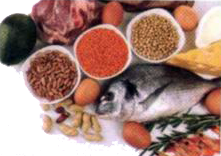
(i) Identify the type of macronutrients present in the above figure
(ii) Give two plant sources for the above nutrient.
(iii) Why should this nutrient be included in daily diet?
(iv) Mention the disease caused in children due to deficiency of this nutrient.
(i) The macronutrients present in the above fig ure are proteins.
(ii) The two sources of the plants, such as soybeans and pulses are shown in the above figure.
(iii) This nutrient is included in daily diet for the purpose of body building.
(iv) Deficiency of this nutrient in children leads to a disease called kwashiorkor.
Topper's Solved these Questions
- HEALTH - OUR GREATEST WEALTHBOOK - PEARSON IIT JEE FOUNDATIONCHAPTER - HEALTH - OUR GREATEST WEALTHEXERCISE - ASSESSMENT TEST (Test 1)
55 Videos
- HEALTH - OUR GREATEST WEALTHBOOK - PEARSON IIT JEE FOUNDATIONCHAPTER - HEALTH - OUR GREATEST WEALTHEXERCISE - CROSSWORD
1 Videos
- HEALTH - OUR GREATEST WEALTHBOOK - PEARSON IIT JEE FOUNDATIONCHAPTER - HEALTH - OUR GREATEST WEALTHEXERCISE - TEST YOUR CONCEPTS (Very Short Answer Type Questions)
39 Videos
- ENVIRONMENT- AN ETERNAL GIFT TO MANKINDBOOK - PEARSON IIT JEE FOUNDATIONCHAPTER - ENVIRONMENT- AN ETERNAL GIFT TO MANKINDEXERCISE - CROSSWORD
1 Videos
- MOVEMENT-AN AMAZING ACTIVITYBOOK - PEARSON IIT JEE FOUNDATIONCHAPTER - MOVEMENT-AN AMAZING ACTIVITYEXERCISE - ASSESSMENT TEST (TEST 1 (CROSSWORD))
1 Videos
Similar Questions
You are given following current-time graph from two different sources,
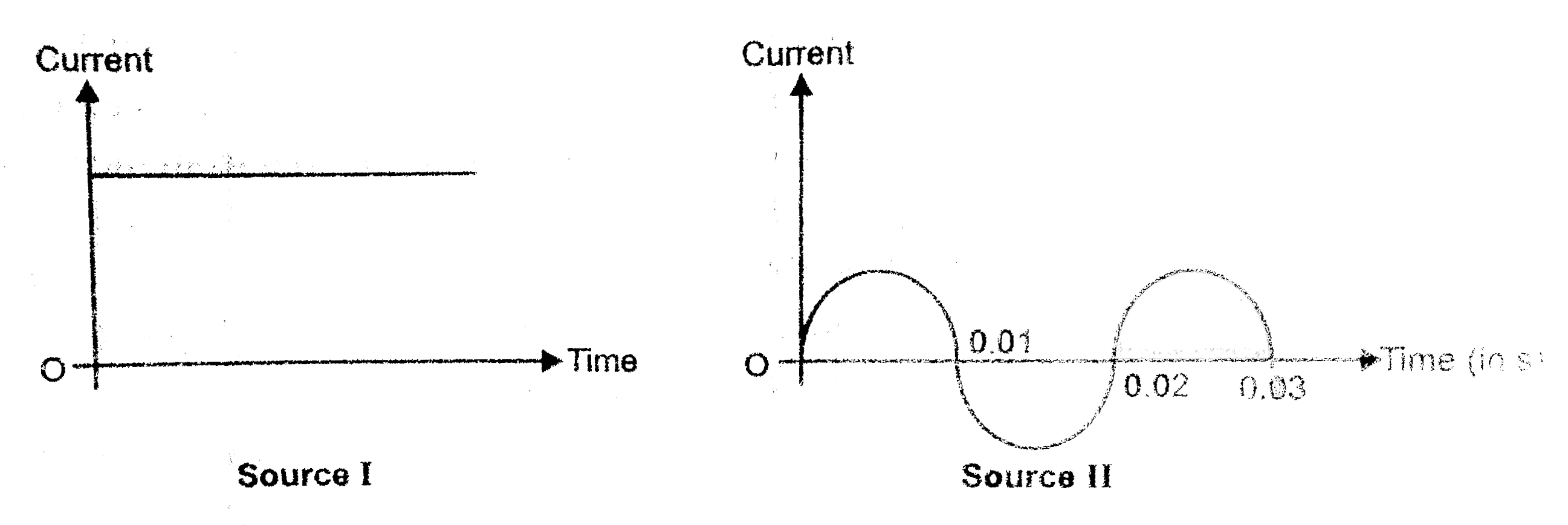
(i) Name the type of current in two cases.
(ii) Identify any one source for each type of these currents.
(iii) What is the frequency of current in case source II in India?
(iv) Use above graph to write two differences between the currents in the two cases.
View SolutionGiven below are two stages in the evolution of man. Study them and answer the questions that follow :
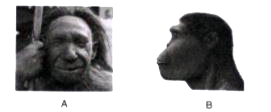
(i) Identify Australopithecus and Neanderthal man from the above pictures.
(ii) Mention two characteristic features each for the two stages.
(iii) Who proposed the theory of Natural Selection?
(iv) Name the organism used as an example to explain 'Industrial Melanisum'.
(v) Give two examples of Vestigial organs in humans.
View Solution
Knowledge Check
Read the given statements carefully.
(i) Innate immunity is a specific type of defence, that is present at the time of birth.
(ii) Malignant malaria is caused by Plasmodium falciparum.
(iii) Malaria could be confirmed by Widal test.
(iv) Active immunity is slow and takes time to give its full effective response.
(v) Saliva in the mouth acts as physiological barrier for pathogens.
Which of the above statements are correct ?A(ii), (iv) and (v)B(i) and (iii)C(i) and (v)D(ii), (iii) and (v)Read the given statements carefully.
(i) Innate immunity is a sppecific type of defence, that is present at the time of birth.
(ii) Malignant malaria is caused by Plasmodium falciparum.
(iii) Malaria could be confirmed by Widal test.
(iv) Active immunity is slow and takes time to give its full effective response.
(v) Saliva in the mouth acts as physiological barrier for pathogens.
Which of the above statements are correct ?A(ii), (iv) and (v)B(i) and (iii)C(i) and (v)D(ii), (iii) and (v)
Shan spices Ltd are the manufactureer of different food specific spices like rajmaa masala cholley masala aaloo parantha masala etc Mr raghav the owner of the company has created different department for puchase porduction marketing finance and human resource .There are thirty employee working in the organisation planning is of paramount importance to the company as Mr Raghav belives that effective planning leads to achievemnet of organisational objectives so in order to make employees focus on objectives he issued instrucitons that during working hours only offical matters will be discussed he made certain rules and code of conduct ofrm the employees to follow according to which employees are not allowed to visit and talk to the employees of other departments except for offical work he emphasied on work perfor which resulted in smooth functioning of the organisation
(i) Identify and state the type of organisation mentioned in the above para
(ii) state one feature of the concept identified in part (1) as mentioned in the above para
(iii) what was lthe purpose behind the fomulation of rules for the employees that restricted their personal communication with the employee of other departments ?
(iv) state two values violated by mr raghav.
View SolutionThe diagram given below represents the location and structure of an endocrine gland. Study the same and answer the questions that follow:
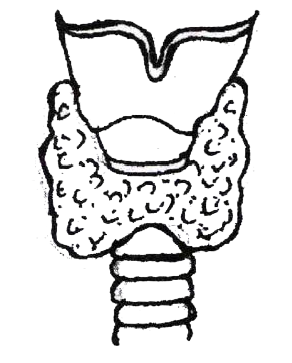
(i) Name the endocrine gland shown in the diagram.
(ii) Name the secretion of the gland which regulates basal metabolism
(iii) Name the mineral element required for the synthesis of the above mentioned hormone.
(iv) Name the disease caused due to undersecretion of the above mentioned hormone in children.
(v) Name the disease caused due to hypersecretion of the above mentioned hormone .
View SolutionThe diagram given below is that of a structure present in a human kidney. Study the same and answer the questions that follows :
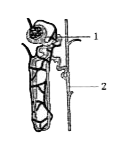
(i) Name the structure represented in the diagram.
(ii) What is the liquid entering part T called? Name two substances present in this liquid that are reabsorbed in the tubule.
(iii) What is the fluid that comes to part '2' called? Name the main nitrogenous waste in it.
(iv) Mention the three main steps involved in the formation of the fluid mentioned in (iii) above.
(v) Name the substance which may be present in the fluid part '11 if a person suffer from diabetes mellitus.
View Solution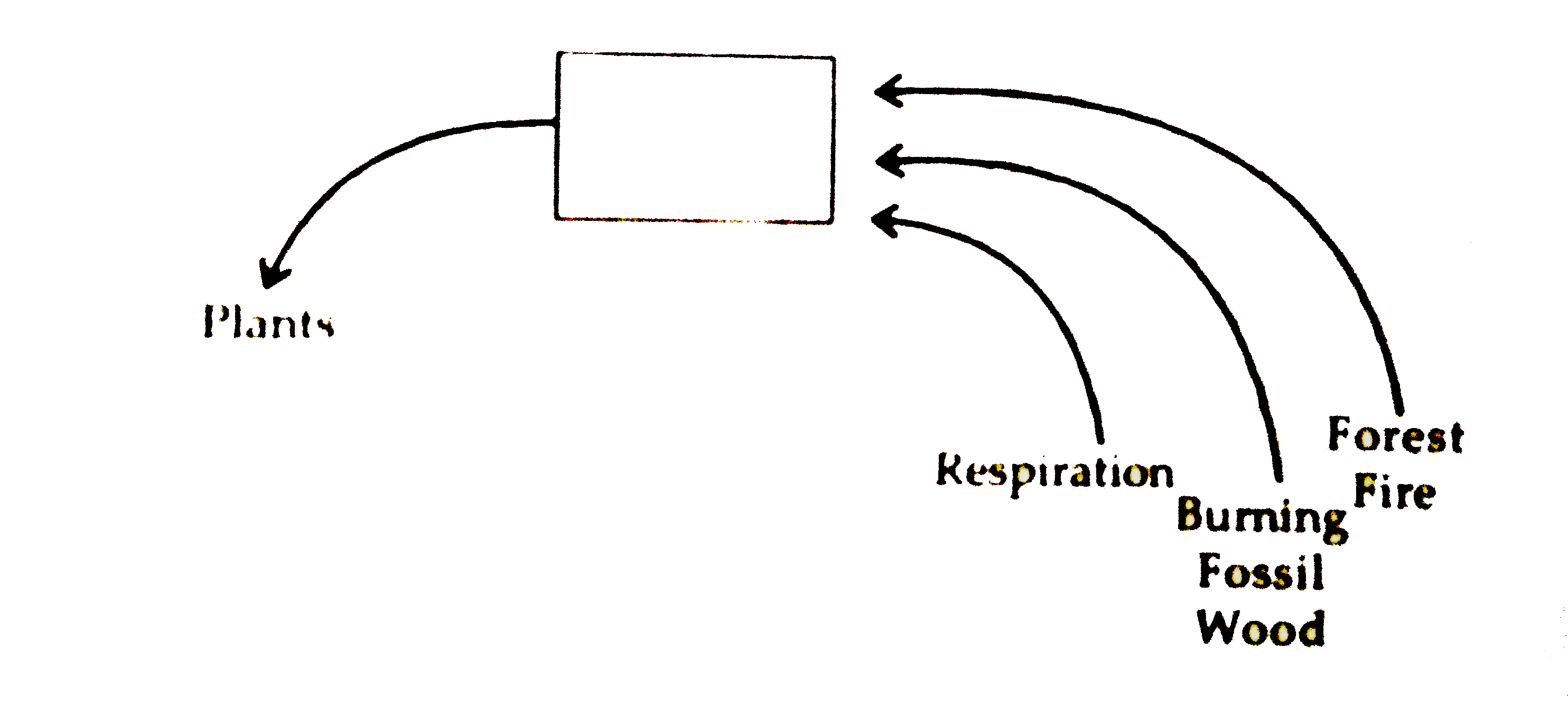
(i) Name the biogeochemical (nutrient) cycle shown above.
(ii) Name an activity of the living organisms not depicted in the cycle by which this nutrient is returned to the atmosphere.
(b) How would the flow of the nutrient in the cycle be affected due to large scale deforestation? Explain giving reasons.
(c) Describe the effect of an increased level of this nutrient in the atmosphere on our environment.
View SolutionStudy the picture given below and answer the following questions :
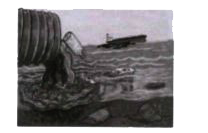
(i) Identify the type of pollution.
(ii) Name one pollutant that causes the above pollution.
(iii) Mention the impact of this pollution on human health.
(iv) State one measure to control this pollution.
(v) What is a 'Pollutant ? Explain the term.
View SolutionThe following is the illustration of the sequence of ovarian events (a - i) in human female.

(i) Identify the figure that illustrates ovulation and mention the stage of oogenesis it represents.
(ii) Name the ovarian hormone and the pituitary hormone that have caused the above mentioned event.
(iii) Explain the changes that occur in the uterus simultaneously in anticipation.
(iv) Write the difference between 'c' and 'h'
(v) Draw a labelled sketch of the structure of a human ovum prior to fertilization.
View Solution
